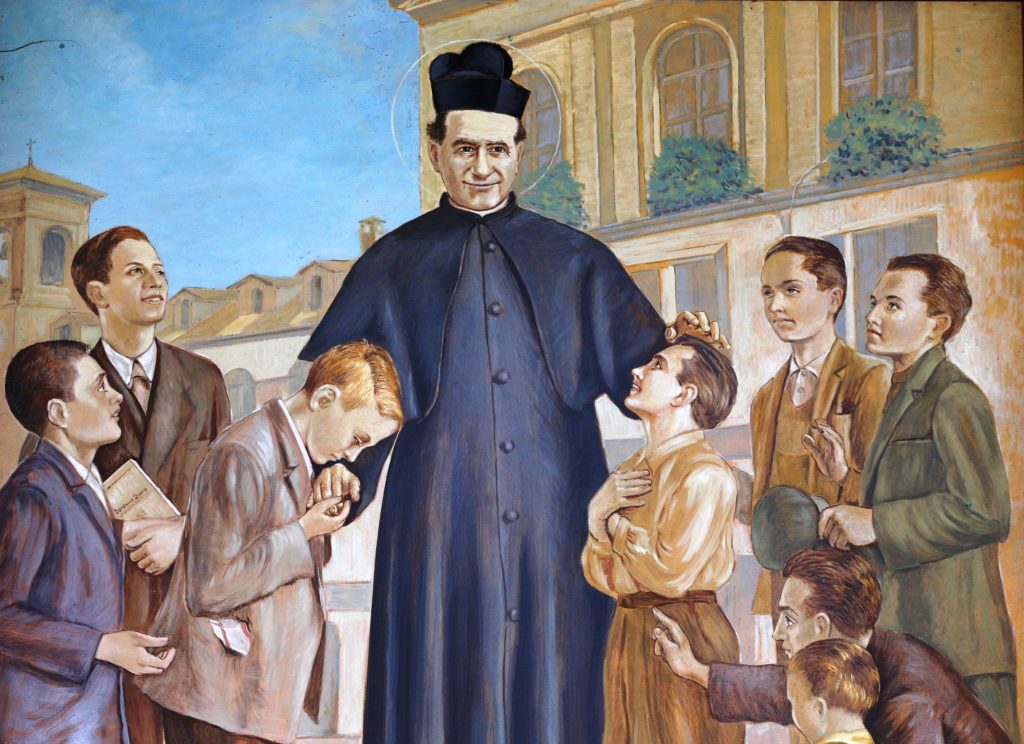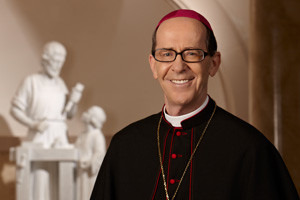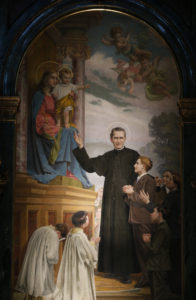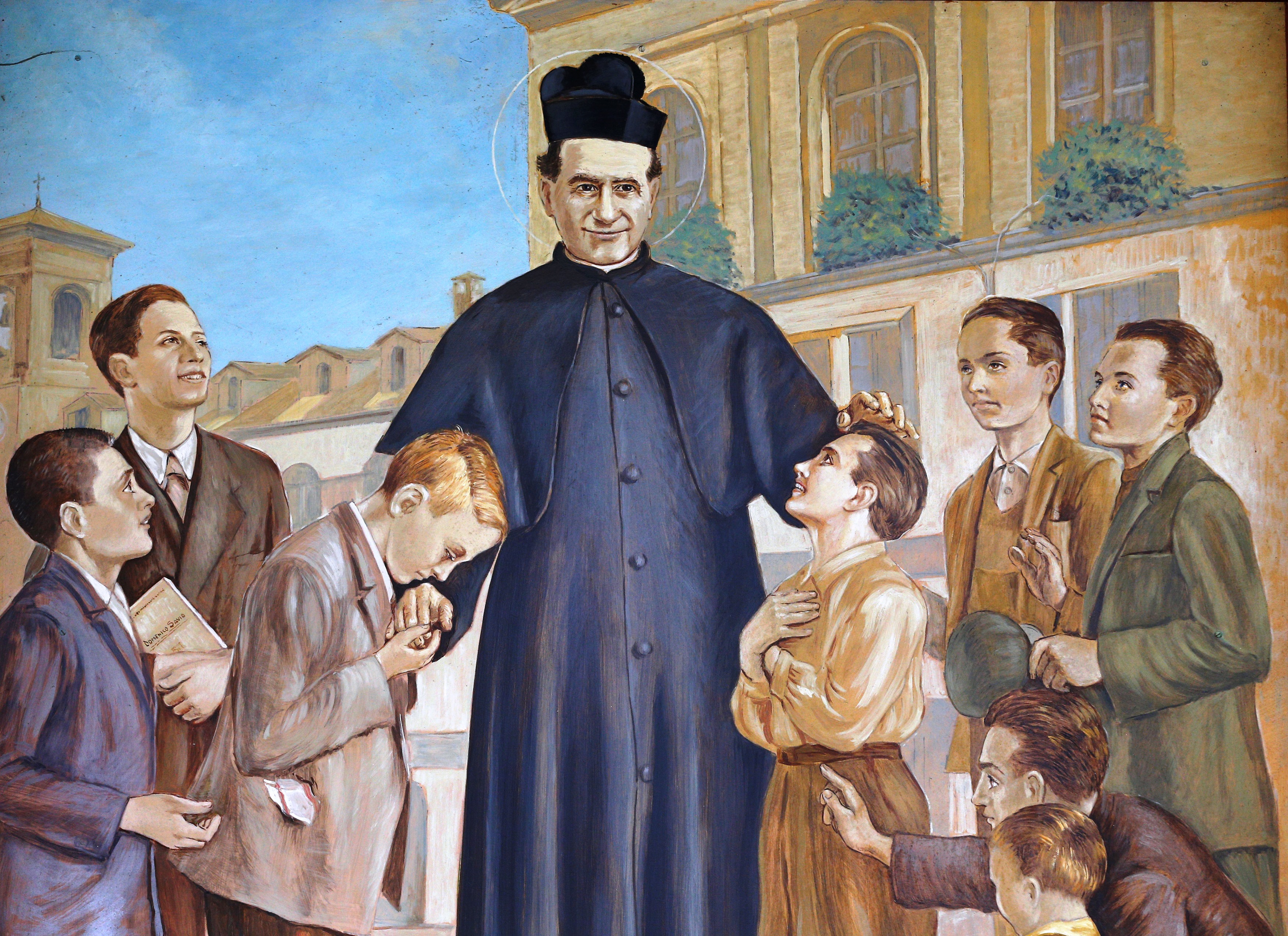
[dropcap]P[/dropcap]ope Francis says that we get to know Jesus best through His wounds, the wounds found in His brothers and sisters in need; and we serve Jesus best by being a channel of His joy and mercy. This certainly was true for the saint whom the Church honors on Jan. 31, St. John Bosco.


In his Apostolic Exhortation, “The Joy of the Gospel,” the Holy Father writes (5), “Our Christian joy drinks of Jesus’ brimming heart. He promises his disciples: ‘You will be sorrowful, but your sorrow will turn into joy’ (Jn 16:20).”
The paradox of Christian joy is that it increases to the degree that we share in the sorrows and trials of others, out of love for Jesus. John Bosco did this with remarkable success, learning initially from the shining example of his mother, who was widowed only two years after John’s birth. She was convinced that her three sons — John, his older brother Joseph and their step-brother Anthony — needed more than a mother who worked hard. They needed a mother who was joyful as she worked, joyful as she cared for them and faced the hardships of life.
Born in Castelnuovo d’Asti, Italy, on Aug. 16, 1815, and due to the inspiration of his mother, at an early age, John entertained the other poor children of his neighborhood by learning from a traveler how to juggle, perform magic tricks, walk a tight rope, and do other imaginative, funny things. His performances were not free, however. The spectators had to recite the rosary together and listen to his little sermon.
Without a father to pay for his education, this future saint worked for a tailor, a shoemaker, a blacksmith and a number of other craftsmen. With the help of his sunny disposition, he made friends with a wide variety of people, especially among those who were poor like his own family. He also learned that hard work done with gladness, after the example of his mother, prepared him to succeed in his seminary studies. After overcoming what seemed insurmountable obstacles, John was ordained a priest in the Italian city of Turin on June 5, 1841. Soon thereafter, he discovered, in its recently sprouted slums of the city, the wounds and injustices created by initial projects of the Industrial Revolution. There he learned about sweatshops with dangerous equipment, starvation wages, child labor and other humanly degrading practices.


With compassion in his heart and a smile on his face, the young Father Bosco dreamed up innovative ways to reach the young men from the slums of Turin. Since most factories were closed on Sunday, he decided to teach the young men how to make the Lord’s Day one of fun, rest and prayer. Gathering in an empty city lot, an unused chapel in a cemetery, or whatever space could be found, he heard confessions, celebrated Mass and then led the ever-increasing numbers who came to him on hikes in the country, or in organized games and competitions, thereby building friendships, handing on truths of the faith, restoring to each youngster a sense of his dignity and making attractive to them the joy and mercy of the Lord.
Through Father Bosco, young people discovered the truth that Pope Francis mentioned when calling for the Jubilee Year of Mercy: “Mercy is a wellspring of joy, serenity and peace.” Only a few years after Father Bosco began his Sunday apostolate among the slum kids of Turin, he started an orphanage; then a few years later, a trade school; and then a whole network of schools and even two religious institutes (one for men and one for women) to expand on the work the Lord had moved him to begin when he discovered and responded with charity to the wounds and injustices of the poor.
The reason that saints change peoples’ lives and transform culture, says Pope Francis, is that, instead of withdrawing from the slums and from the poor on the margins of society, they enter into the depths of mercy by sharing in the suffering and sorrows they find there. This is what the Lord is inviting you and me to do during the Jubilee Year of Mercy. Inspired by men and women like St. John Bosco, we can begin by being attentive to the needs of others and by responding to them in ways that are winsome and attractive. The Lord wants to draw others to Him by means of the joy He places in our hearts and in the hearts of all who become His disciples.






![[VIDEO] Make Sunday feel like Sunday again](https://www.catholicsun.org/wp-content/uploads/2021/04/2021-YOUTUBE-BISHOP-MESSAGE-THUMBNAIL-ENGLISH-218x150.png)